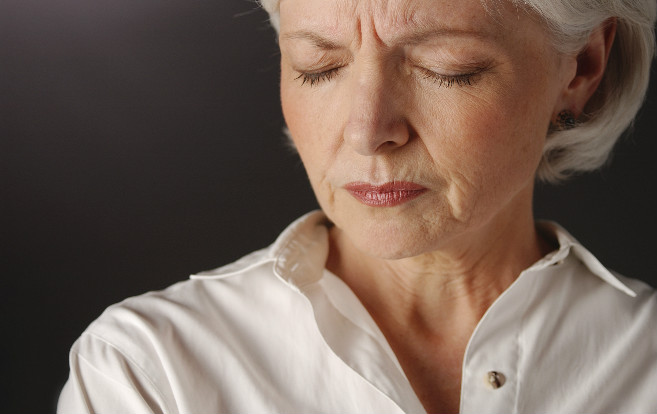Few Women Know the Risks and Symptoms of Stroke

A young nurse shares what she learned as a stroke survivor
By Debra Wood, RN, contributor
Stroke, the third leading cause of death in women, can affect anyone. Rapid intervention offers a way to reduce long-term disability, but the majority of women do not know their gender-specific risks or symptoms of stroke, according to a national survey released by The Ohio State University Wexner Medical Center.
“Get checked, prevent, and educate yourself and patients,” said Callie Earliwine, RN, BSN, a critical care nurse at Ohio Valley Medical Center in West Virginia, who had a stroke on March 23, 2015, at age 32 and was treated at Ohio State Wexner.
“It was a major shocker,” Earliwine said. The stroke happened while Earliwine was in the break room with a fellow nurse who noticed her head and eyes were moving uncontrollably. Leading up to the event, Earliwine had experienced severe headaches and hand tremors but sloughed them off as work stress.
Ohio State conducted a survey of 1,000 women. Only 10 percent recognized that hiccups occurring with unusual chest pain are an early stroke warning signs for women. Other symptoms include headache, dizziness, numbness that is more severe on one side, an uneven smile, difficulty speaking or understanding, confusion, or loss of balance or trouble walking.
“You have to know when you’re having a stroke, you have to recognize that it’s a stroke and you have to get to the emergency room and receive the medication,” said Diane Greene-Chandos, MD, a neurologist and director of neuroscience critical care at Ohio State Wexner.
The clot dissolver tissue plasminogen activator (tPA) can only be given within a three-hour window after stroke onset. A CT scan must confirm the stroke is ischemic before the patient can receive the treatment.
The Ohio State also found only 11 percent of the women surveyed could identify female specific risk factors, such as pregnancy, using oral contraceptives or hormone replacement therapy, having lupus or migraine headaches with aura. Pregnancy risk is highest in the final months and immediately after delivering the baby.
Women also share some risk factors with men, including smoking, a sedentary lifestyle and hypertension. Other risk factors for men and women include having a hemoglobin A1C of more than 7 if you are already diabetic, or 5.7 if not; as well as having a LDL cholesterol of less than 100 if you are without additional stroke risks, or less than 70 with additional stroke risks, particularly diabetes.
Earliwine had a history of migraines but no hypertension. With normal physicals and lab work, she did not consider herself at risk. But she had a patent foramen ovale (PFO), or hole in the heart, which she has since had surgery to close. She urged women to report any symptoms to their physicians.
“Prevention is the best way,” Earliwine said. “If you feel any signs or symptoms, make an appointment. It’s better to be told it’s nothing than be surprised, having a stroke.”
The National Stroke Association recommends women with migraines who smoke to stop tobacco use immediately. Pregnant women should monitor their blood pressure. Women also should receive hypertension screening before starting on oral contraception.
In addition to missing risk factors and symptoms of stroke, nearly half of the women surveyed by The Ohio State team did not know the risks women face after suffering a stroke, such as nerve damage, difficulty swallowing and depression, which could interfere with the woman continuing with rehabilitation. The National Stroke Association reports that more women will have a worse outcome than men after a stroke and women are more likely than men to live in a long-term care facility after a stroke.
Earliwine feels “great” now and continues to obtain medical care. She experiences weakness in her right arm and tremors, which her physician attributes to increased stress.
“I love being back and taking care of patients,” said Earliwine, who is glad to be able to return to the other side of the medical equation. “I love being a nurse.”
Advance your nursing career with excellent pay in thousands of locations! Apply now to travel!
© 2015. AMN Healthcare, Inc. All Rights Reserved.